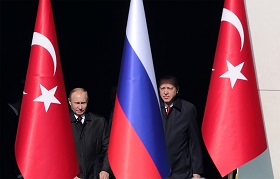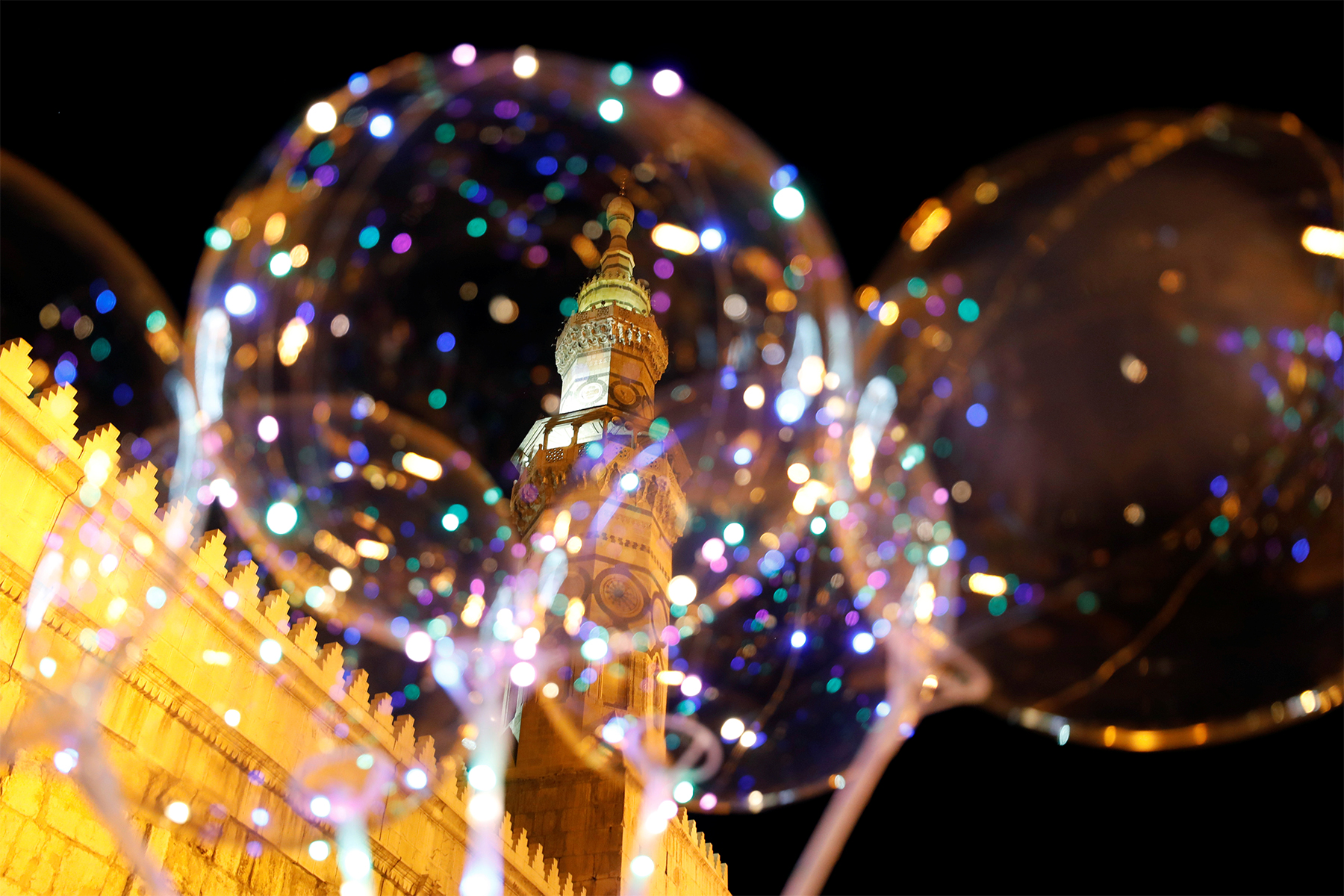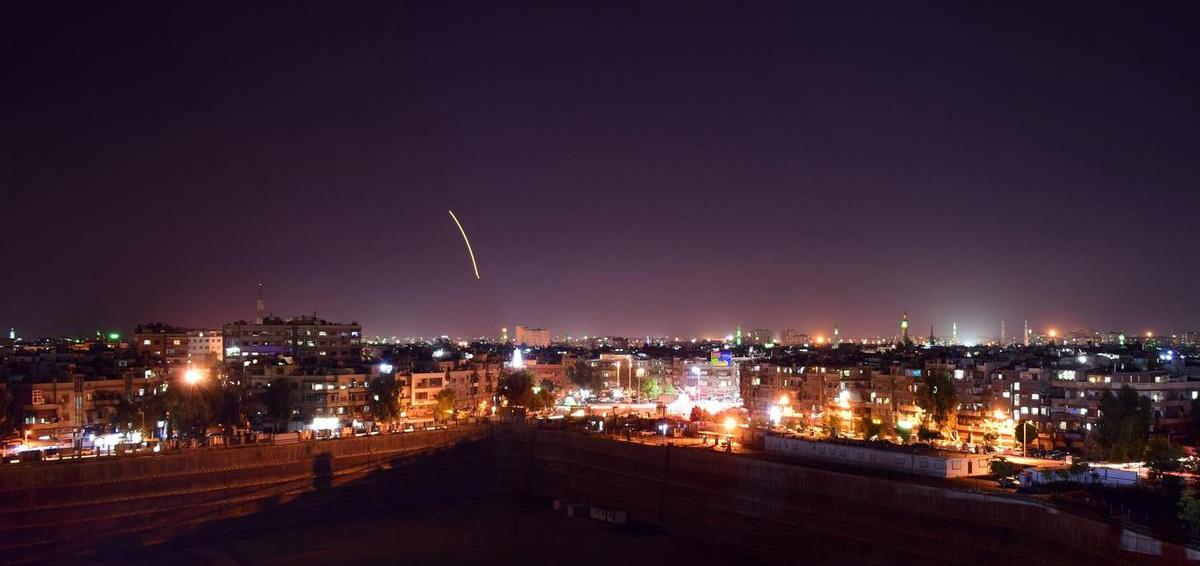Russia has to take a restrained position on the issue of Idlib so
that the developments in Syria evolve in line with its interests. On
this, Turkey can be helpful, if it proposes solutions on the settlement
of the situation in the eastern part of Syria for the sake of preserving
the country’s territorial integrity.
For a long time, Idlib was perceived as an “explosive” area, because a majority of the population was not only opposed to President Assad, but was also heavily infiltrated by radicals. Over the past two years, as part of agreements with the Russian center for reconciliation of the warring sides, almost all radical elements from the whole country have been brought to Idlib via the so-called “safety corridors” from Aleppo, Eastern Ghouta, Harasta, and the southern part of Syria. The most intransigent and combat-ready groups were concentrated there. What united all these radicals was that they opposed Assad and his government.
Some of Idlib’s groups are clearly influenced by Turkey. That is why Russia made a number of concessions to Ankara so that Erdogan could handle the radicals. Turkey knows what groups are located in Idlib and how to deal with them. The Turkish armed forces have already set up a number of checkpoints along the borders of the Idlib province – in line with the Astana accords but also to keep an eye of the opposition. It is, however, unclear how Turkey will try to negotiate with Abu Mohammad al-Julani, the leader of Al-Qaeda’s Syrian branch, whose group Hayat Tahrir al-Sham is dominating and controls the province capital. They are the best qualified fighters.
In any way, now Erdogan faces the challenge of separating the radicals from the “healthy” opposition forces and squeezing out the radicals afterwards. The question is, however, where they will go. Leaving Syria through Turkey is an unacceptable option for the Turks and many other actors. It is another thing if they end up in prison in Turkey or Idlib itself. There are other options too, but the crux of the matter remains the same. In other words, Russia gives the initiative to Turkey and what will be going on in Idlib until December 2018 is at Ankara’s discretion. The results will largely determine the further political process. If the opposition groups are “whitewashed” in Idlib and problems with the radicals are solved, which is doubtful, Turkey will have more opportunities to influence the political process in the future.
As for Russia’s objectives, it needed logistical advantages and not control of Idlib in the first place. In particular, Moscow was interested in the route M5 from Damascus to Aleppo, which is the most direct and best prepared motorway, control of which would facilitate all logistics available. In addition, agreements between Putin and Erdogan envisage opening the route M4 to Latakia.
At the negotiations between Iran, Russia, and Turkey in Tehran on September 7, no agreement on Idlib was achieved. Erdogan disagreed with his counterparts and was pinning his hopes on the next bilateral meeting with Vladimir Putin. There has been long communication between chiefs of general staff and heads of intelligence services. As a results, the sides decided to set up a 15 to 20 km-wide demilitarized zone.
The strategic task of Moscow is to agree on the regional security structure. It is necessary to establish the “red lines”: who and where can fly, assault and so on. For Russia, it is crucial to destroy certain radical groups based in Idlib – these include fighters from the former Soviet states, including from Caucasus. If the plans to set up a demilitarized zone are implemented, the groups based along Idlib’s borders, which are in fact the frontline, will be forced to abandon their fortifications and logistical infrastructure.
Strategically, the fate of Idlib is not crucial for Russia. But it is important that no danger is posed to the Russian base in Latakia. Stability, albeit “frozen” is also acceptable for Idlib. It is another issue that security needs to be ensured and someone must act as a guarantor of this stability.
The Syrian government’s position is that it must regain control over each square meter of the country’s territory. But the situation in Idlib is too complicated: it is not the south where negotiations are possible. Agreements on Idlib between Turkey and Russia are seen as “temporary”, helping to avoid a humanitarian crisis. Indeed, if a military operation had begun, there would have been hundreds of thousands of refugees. At the same time, these agreements are a very sensitive issue for Damascus, because Turkey has in fact received another “splinter” of Syria.
Another territory Turkey and Syria has been arguing over for decades, is Hatay, near Idlib. Strictly speaking, it is “Hatay” only for Turks; Syrians call it “Alexandretta”. During the French protectorate, it was transferred to Turkey. The Syrians disagreed, considering the province their own. In addition, the Turkish population is increasingly hostile towards the Syrian migrants in the country, and there are many problems in need of solution, as resent research, for example, by the International Crisis Group, shows. There are about 3.5 million Syrians now in Turkey, and Idlib will only compound the situation.
Turkey is unlikely to want obtaining a “splinter” of Syria, it would rather seek agreement with the central government of the country. In such a situation, Idlib cleared of the radicals can become a trump card for Erdogan. However, if the radicals remain, and drones continue to threaten the Russian military base in Latakia, then Assad and his allies will go on the offensive. We will get a war once again, and the humanitarian situation could deteriorate further.
It is worth mentioning that for Russia, as well as for Damascus, it is not Idlib, but logistics, that is fundamentally important. Strategically, eastern Syria, where oil and gas deposits are concentrated, is of much greater significance. Now, the Kurdish forces (SDS), covered by the US, control them. The Trump administration wishes to maintain its presence until a really “credible” political process in the American understanding begins. In this context, it is eastern Syria controlled by the SDS that will be on stake at the negotiations between the allies of Damascus and the forces behind the Kurds.
For the Turks, most of the Syrian Kurds are terrorists: inside the SDS, we have YPG factions – the “People’s Defense Forces” associated with the fighters of the Kurdistan Workers’ Party, considered a terrorist organization in Turkey. Actually, because of this, relations between Turkey and the US continue to worsen. In addition, there is the problem of Fethullah Gülen, regarded as the organizer of 2016 coup attempt in Turkey.
This is why Russia has to take a restrained position on this issue so that the developments in Syria evolve in line with its interests. On this, Turks can be helpful, if they propose solutions on the settlement of the situation in the eastern part of Syria for the sake of preserving the country’s territorial integrity. Areas occupied by Kurds with American support are important for Damascus to begin the process of the country’s economic reconstruction.
First published in the Valdai Discussion Club.







